When it comes to conservative designs, Audi is right at the top. Each time it introduces a new generation of an existing model its design is evolutionary rather than revolutionary, but the company has moments when it isn’t completely risk-averse.
When it unveiled its TT concept in 1995 it looked like nothing else, from Audi or any of its rivals. The company was inundated with requests for it to go into production and, when the TT arrived, it looked much the same as the concept car. When an all-new TT arrived in 2006 some bemoaned the styling updates, but the Mk2 was better in almost every way, while the Mk3 of 2014 built on the foundations laid by the earlier models, and was the best iteration yet.
Models covered
- Audi TT Mk3 (2014-date) - the Mk3 TT is one of the best all-rounders – stunning to look at, good to drive and beautifully built.
- Audi TT Mk2 (2006-2014) - with prices tumbling, the cool Mk2 coupe and Roadster look tempting.
Audi TT Mk3
History
The third-generation TT coupé reached UK roads in December 2014, priced from £29,770 for the 227bhp 2.0 TFSI petrol edition. This came with either front or quattro four-wheel drive, or there was a 181bhp 2.0 TDI diesel that initially came only in front-wheel drive form – although a quattro drivetrain was offered with this powerplant from spring 2017.
The TT roadster that arrived in March 2015 featured the same options as the coupé; both bodystyles got a 395bhp TT RS option from September 2016. This had a 2.5-litre five-cylinder engine. Also launched in March 2015 were the 306bhp TTS coupé and roadster; six months later a new entry-level front-wheel-drive 178bhp 1.8 TFSI edition was added. A facelift in October 2018 brought minor styling updates along with extra standard equipment.
Which one should I buy?
Any TT is fun to drive and easy to live with, whether it’s got a petrol or diesel engine, manual or automatic transmission, or is in the coupé or roadster format. They’re all loaded with equipment, too, with the entry-level Sport featuring 18-inch alloy wheels, selectable driving modes, xenon headlights, leather and Alcantara trim, air-conditioning, a multi-function steering wheel, a 12.3-inch digital instrument display, an eight-speaker hi-fi with a DAB radio and Bluetooth, plus a retractable rear spoiler.
S line cars come with 19-inch wheels, LED headlights, electric lumbar adjustment for the front seats, and the option of sports suspension lowered by 10mm, while the TTS features adaptive dampers, Nappa leather trim, heated front seats and LED interior lighting. The TT RS gets lashings of leather throughout the cabin and climate control, plus much sportier styling inside and out.
Alternatives to the Audi TT
Coupes may be going out of fashion, but the TT still has plenty of rivals. One of the most alluring is the Ford Mustang; this is plentiful, top value and comes with a V8 option or a more frugal turbocharged 2.3-litre four-cylinder engine. The Porsche Boxster and Cayman, along with the Alpine A110, are class leaders when it comes to dynamics, but they’re all more costly.
The previous-generation BMW Z4 is unique in the segment with its folding hard-top, while the Toyota GT86 is fun to drive, affordable and reliable but it’s more basic, and is a coupé only. The Nissan 370Z is getting on and it lacks refinement, but you get plenty of grunt for your money. The VW Scirocco is practical, affordable and comes with efficient engines, while the Peugeot RCZ looks great and offers excellent value.
What to look for
Codenames
The first Audi TT was codenamed the 8N by its manufacturer. The Mk2 was the 8J, whereas the Mk3 was the 8S.
Windows
The side windows can freeze shut in sub-zero conditions. Dealers can fix things by fitting new seals to them, which prevents this.
Sat-nav
A lot of TTs come without sat-nav. It can be retro-fitted by dealers, but this is a pricey job, usually costing around £1,500.
Tyres
The factory-fit Hankook tyres aren’t generally all that highly regarded; Michelin Pilot Sports 4s are the favoured swap for a better drive.
Interior
One of the many TT high spots, its cabin is as well made and as easy to use as you’d expect of an Audi. The digital dash is a model of clarity, although it might be a bit much for those who aren’t fond of screens in their cars. The supportive front seats are impressive, although the coupé’s rear seats are generally considered extra storage due to very limited head and legroom; the roadster is strictly a two-seater only, meanwhile.
With a 305-litre boot (712 litres with the seats folded down) the coupé is practical for a car of this class; the roadster’s boot offers 280 litres but its opening is narrow, impacting its usability.
Prices
Check out the latest used prices for the Audi TT on our sister site Buyacar.
Running costs
Owners of third-generation Audi TTs can choose fixed or variable service intervals. The former is set at 12 months or 9,000 miles – whichever comes first – whereas the latter allows up to two years and 18,600 miles between services, but it can be less than this.
Services alternate between minor and major, priced at £269 and £369 respectively for diesel-engined cars. The equivalent prices are £229 and £309 for TTs with a 1.8 or 2.0-litre petrol engine, but on a TT RS the figures are £220 and £414 instead. All TT engines are chain-driven, so there are no cambelts to replace; there’s no set interval for replacing the coolant, but the brake fluid should be renewed every two years, at a cost of £70.
Recalls
The third-generation Audi TT has been recalled only once so far, and 11,950 examples were affected by this campaign, which was for cars built up to May 2019.
The problem was that in a crash the fuel tank could be ruptured, leading to fuel leaks and then a fire, or even an explosion in the worst-case scenario. The solution Audi came up with was to get dealers to fit a protector shield on the underside of the car’s body.
In addition to this, there was also the diesel emissions campaign, which affected some TTs with the 2.0 TDI engine. To find out if a car is affected by this issue, you can put the chassis number into https://bit.ly/33gyi9I. Overall, though, the TT has a very impressive record in this area, which definitely bolsters its appeal compared with some rivals.
Driver Power owner satisfaction
Whereas the Audi TT Mk2 has appeared in our Driver Power surveys, the third-generation car has yet to do so in either the new or used polls. Audi did feature in this year’s brands survey, however, finishing in 21st place out of 30 companies. Owners like the cabin quality, performance, infotainment and ergonomics of their Audis, but scores for reliability could be better, while harsh ride quality seems a hallmark of the firm.
Verdict
The Audi TT isn’t the best driver’s car and the rear seats may be too tight for regular use, but it’s still one of the best all-rounders if you’re looking for something stylish, relatively usable and fun to drive.
It comes with some excellent engines, offers decent boot space (at least in coupé form) and it’s as well built as you’d expect any model from Audi to be.
The current TT is likely to be the final edition of this classic, with Audi set to focus more on SUVs in the future. That means this third take on the formula is likely to remain in strong demand, so maybe now is the time to snap up the best one you can find.
from Sitewide RSS feed https://bit.ly/3m7yW0u
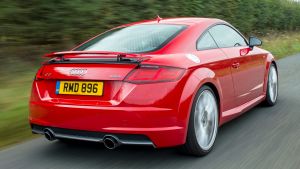
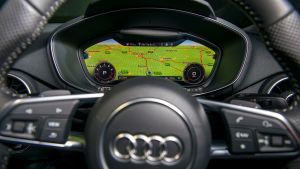

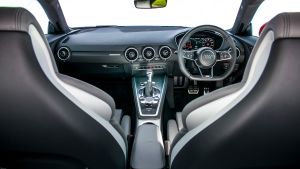
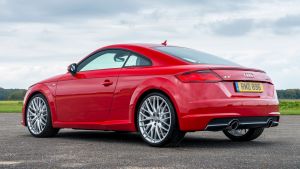
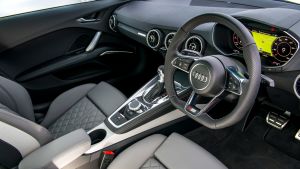
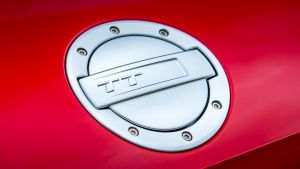
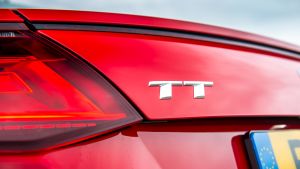
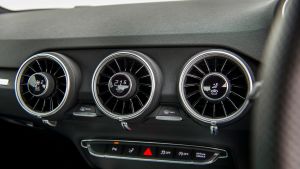
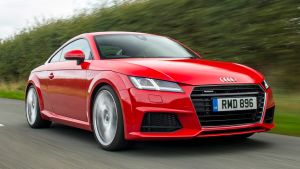
Comments
Post a Comment